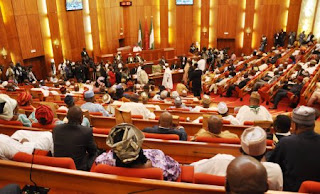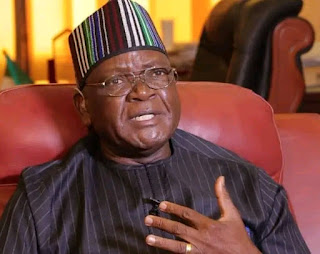Senate Rejects Buhari’s Request To Borrow $30 billion


The Senate has rejected President Muhammadu Buhari’s request for authorisation to borrow about $30 billion.

The president, last Tuesday, forwarded a request to the National Assembly to approve external borrowing plan of $29.960 billion to execute key infrastructural projects across the country between 2016 and 2018.
He made the requests in two separate letters to the President of the Senate, Bukola Saraki, and Speaker of the House of Representatives, Yakubu Dogara.
Mr. Buhari said the external loan, the biggest in Nigeria’s history, will fund targeted projects cuts across all sectors with special emphasis on infrastructure, agriculture, health, education, water supply, growth and employment generation.
Other sectors, he said, included poverty reduction through social safety net programs and governance and financial management reforms, among others.
According to him, the cost of the projects and programs of the borrowing (rolling) plan is $29.960 billion.
This is made up of proposed projects and programs loan of $11.274 billion, special national infrastructure projects $10.686 billion, Euro bonds of $4.5 billion and Federal Government budget support of $3.5 billion.
The Majority Leader of the House, Femi Gbajabiamila, was quoted on Monday as saying that the House would approve the loan.
But The Senate considered the request on Tuesday and refused to give its approval.


The Senate has rejected President Muhammadu Buhari’s request for authorisation to borrow about $30 billion.

The president, last Tuesday, forwarded a request to the National Assembly to approve external borrowing plan of $29.960 billion to execute key infrastructural projects across the country between 2016 and 2018.
He made the requests in two separate letters to the President of the Senate, Bukola Saraki, and Speaker of the House of Representatives, Yakubu Dogara.
Mr. Buhari said the external loan, the biggest in Nigeria’s history, will fund targeted projects cuts across all sectors with special emphasis on infrastructure, agriculture, health, education, water supply, growth and employment generation.
Other sectors, he said, included poverty reduction through social safety net programs and governance and financial management reforms, among others.
According to him, the cost of the projects and programs of the borrowing (rolling) plan is $29.960 billion.
This is made up of proposed projects and programs loan of $11.274 billion, special national infrastructure projects $10.686 billion, Euro bonds of $4.5 billion and Federal Government budget support of $3.5 billion.
The Majority Leader of the House, Femi Gbajabiamila, was quoted on Monday as saying that the House would approve the loan.
But The Senate considered the request on Tuesday and refused to give its approval.





Comments
Post a Comment